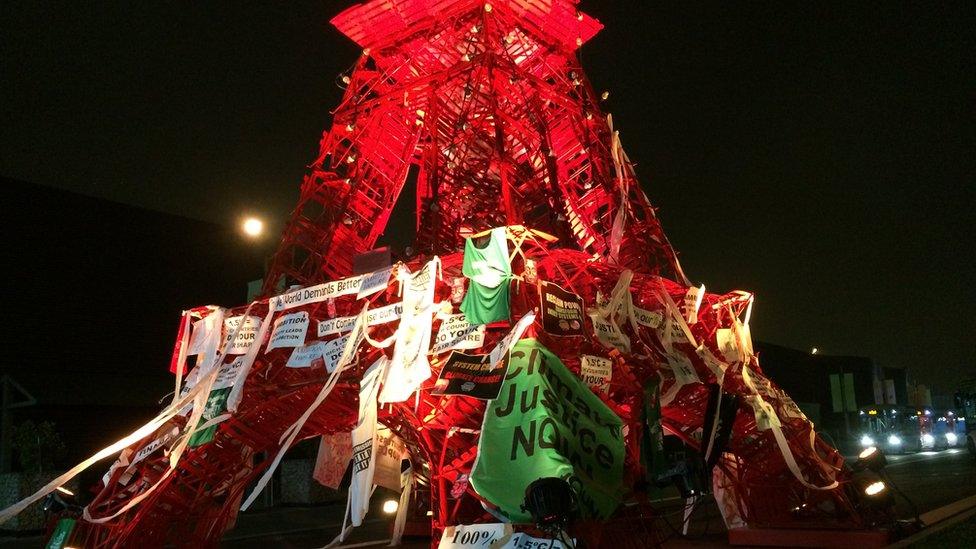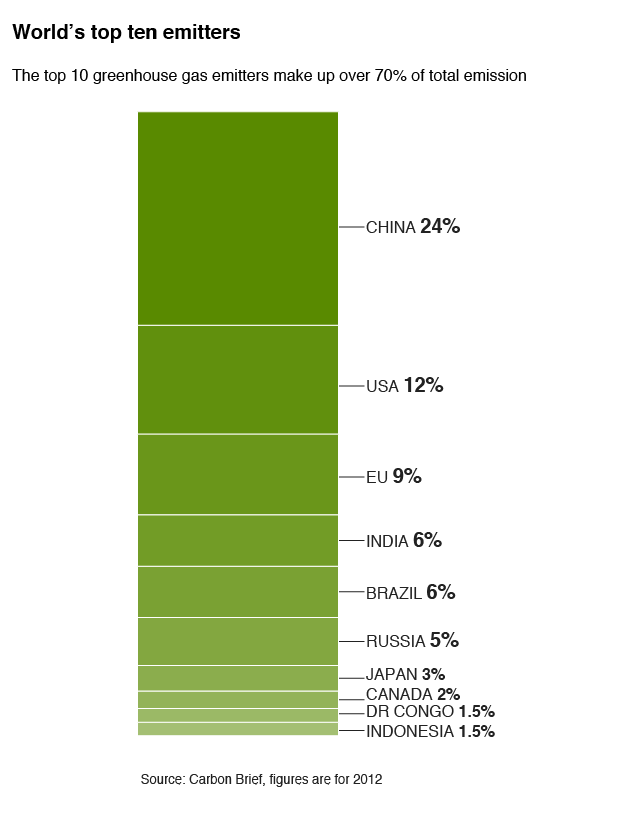COP21: US joins 'high ambition coalition' for climate deal
- Published
The BBC’s environment correspondent Matt McGrath explains how the COP21 conference is divided into many factions
The United States has joined with the EU and a range of other countries at COP21 in an effort to secure a final agreement.
The so called "high ambition coalition" now comprises well over 100 countries from the rich and developing world.
As well as the US, Norway, Mexico and Colombia have offered their support to the alliance.
Delegates worked through the night on a draft text of the agreement with a further version likely on Thursday.
On Tuesday the European Union joined with 79 countries from Africa, the Caribbean and the Pacific to push for an "ambitious, durable and legally binding" deal with a strong review every five years.

COP21 Live, external: The latest updates from Paris

On Wednesday, the US joined the grouping, which, although it will not be a formal negotiating block, has set out a common position on what the Paris agreement must achieve.
Climate allies
"We will be fighting for some very basic issues," said Tony De Brum, foreign minister of the Marshall Islands.
"Strong recognition of the below 1.5-degree temperature goal, a clear pathway for a low-carbon future, five-yearly updates and a strong package of support for developing countries, including delivery of $100bn per annum," he said.
US lead negotiator, Todd Stern, echoed the call for the 1.5-degree target to be recognised in the eventual agreement.
"We need beyond the below 2-degree target; we need to have a recognition of 1.5 degrees in the agreement and we need a very strong and balanced transparency article so everybody knows what we are all doing.
"This is our moment and we need to make it count," he said.

Protestors took their message to the mini Eiffel tower at the Le Bourget conference centre
The US Secretary of State, John Kerry, also told the meeting that the "science was screaming at us", and he urged the compromises necessary to make the deal happen in Paris. He announced a doubling of grant-based adaptation funding by 2020 to $800m.
In the conference, the release of a new text was seen as a significant moment as it marked the first time the French presidency issued a draft of what they believed the agreement could look like.
At just 29 pages, encompassing an agreement and a draft decision, the new document marked a significant step forward in terms of size and in terms of cutting down the options presented to negotiators.
COP president, Laurent Fabius, said that questions of differentiation, finance and long-term ambition were still areas of significant disagreement.
Rich and poor nations alike both had problems with the text.
"Developed countries are not fulfilling their obligations," said Indian minister Prakash Javadekar.
"We cannot yet see the balance that we are all working towards here," said Peter Woolcott, the Australian environment ambassador.
Follow Matt on Twitter @mattmcgrathbbc, external.


UN climate conference 30 Nov - 11 Dec 2015

COP 21 - the 21st session of the Conference of the Parties - will see more than 190 nations gather in Paris to discuss a possible new global agreement on climate change, aimed at reducing greenhouse gas emissions to avoid the threat of dangerous warming due to human activities.
COP21 Live, external: All the latest from Paris
Explained: What is climate change?
In video: Why does the Paris conference matter?
Analysis: Latest from BBC environment correspondent Matt McGrath
In graphics: Climate change in six charts
More:, external BBC News climate change special report
